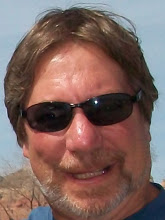I am saddened by the death of All-Star catcher Tim McCarver, who died this morning at the age of 81.
I thought I knew a lot about baseball in 1981, when I moved for work to New York City. McCarver was the Mets every day broadcaster with Ralph Kiner.
He had that laid back southern drawl that was easier to listen to than the gruff cacaphony that I was hearing in the New York streets but moreover, McCarver offered insights into the game.
I don't know who said it about McCarver but the quote I heard was, "If you ask McCarver the time of day, he will tell you how the watch works."
Maybe, it was a good line but he also made me think when he would broadcast. He wasn't a "homer" in which the home team could do not wrong. McCarver, having knowledge from a 21-year playing career that he began at the age of 17 in 1959. He would point out when players were in the wrong.
"Praise without criticism ceases to be praise," McCarver once said.
He played in three World Series catching Hall of Fame pitchers Bob Gibson and Steve Carlton. He was teased for his racial views coming out of high school by Gibson. He and Carlton clashed at first but became so close that Carlton said, "When we die, we'll be buried six feet, six inches apart." Of course that is the distance between the mound and the catcher.
What McCarver taught me was the little nuances of the game. He would point out that the risk of bringing the infield in was that a lot of short flares off the handle of the bat would fall in the shallow outfield. He pointed out his disagreement with the conventional wisdom of guarding the line in the late innings against every hitter. He pointed out that unless the righthanded batter was a pure pull hitter, it didn't make sense to pull the thirdbaseman toward the foul line. "If you didn't play the thirdbaseman there for six innings, why would you change in the seventh inning."
McCarver thought the opposite field outfielder often played too deep. There were many insights that I found useful later on. While some found him too detailed and making trivial or obvious points, I agreed with his explanation that there were people tuning in who were new to the game and needed the detail to understand it.
I remember him filling dead time in games with his knowledge of Frank Sinatras phrasing of songs, his appreciation of the humor of dead pan comic Stephen Wright.
Later when I started working Reds' games I was sitting in the back row of the Riverfront Stadium press box. I kept a couple pencils that were sharpened so often that you could barely write with them but I kept them because they had full erasers.
One afternoon McCarver asked to borrow a pencil. I had a long pencil with no eraser at all among the stubby pencils with all erasers. McCarver picked up the long pencil with no eraser and made a remark to me about the others. I explained them to him and told him I admired his confidence that he chose the one without the eraser. He had a good laugh and always remembered me when he came to Cincinnati.
He had a special relationship with the goof ball elevator operater, Schneider, who would act like he was doctoring the elevator buttons with sand paper during a Gaylord Perry controversy of scuffing the baseball.
These are the little personal things I will remember more than his .271 carerr batting average.
RIP Tim



No comments:
Post a Comment